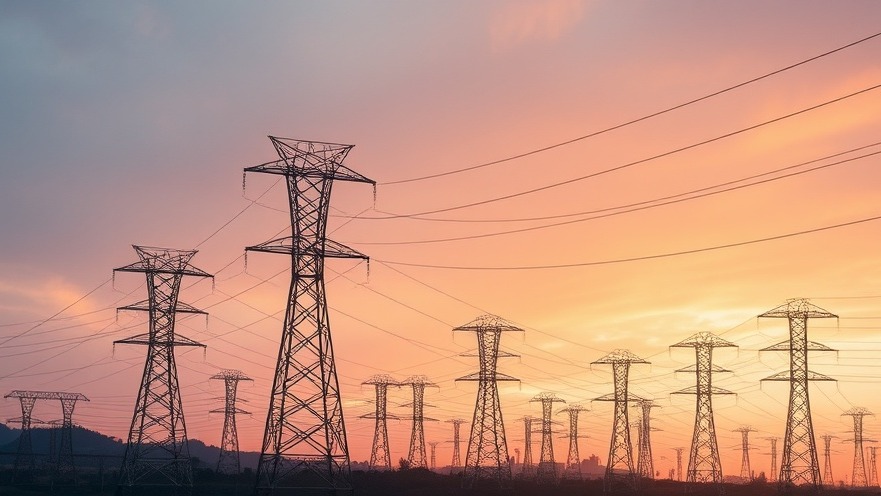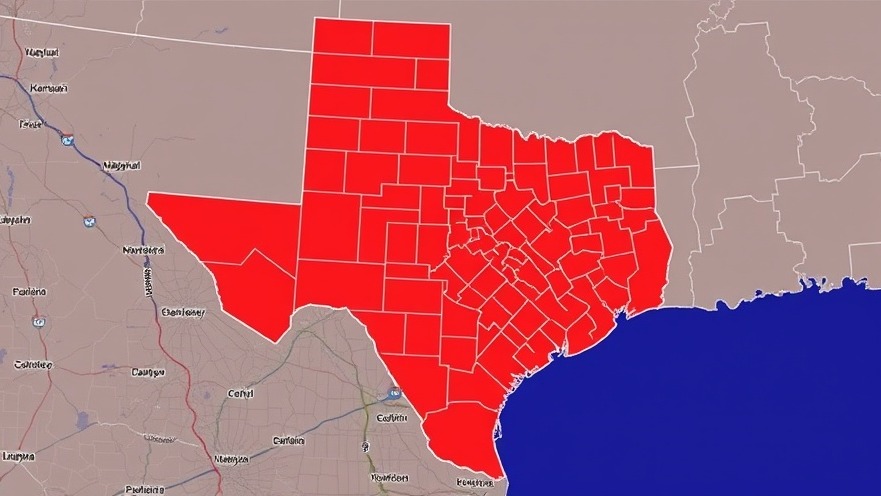
Plano Joins Forces Against Rate Hike
In a significant move, the city of Plano has opted to delay Oncor's proposed $834 million rate increase, aligning itself with neighboring municipalities to challenge what many see as a burdensome financial measure. The decision came during a recent city council meeting where concerns over the potential impact on local residents and businesses fueled discussions among council members and community stakeholders.
Why the Delay Matters to Dallas Residents
The proposed rate increase by Oncor, which serves electricity to many residents in Texas, raises vital questions for consumers. It signifies not just a larger bill but also reflects broader issues within the Texas energy market, including infrastructure investments and regulatory responses. The Dallas-Fort Worth area, known for its rapid expansion and growing population, is particularly sensitive to changes in utility costs.
Community Impact and Local Politics
As part of the collective resistance, Plano's action highlights a rising trend of collaboration among cities in the Dallas area, where local governments are increasingly banding together on shared concerns. The city’s Mayor has stressed the need for a fair assessment that considers the economic strains faced by citizens, especially in the wake of ongoing recovery from the pandemic. Residents are keenly aware that these rate hikes could limit disposable income, affecting local businesses and the overall economy.
Voices from the Community: Residents Speak Out
Community sentiments are staunchly against unregulated rate increases. Plano resident Joan Garrett commented, "We must hold Oncor accountable as rising utility costs put additional strain on families who are already making sacrifices due to inflation. Our energy bill is one of the unavoidable expenses, and it should be kept reasonable." This frustration echoes through community forums and social media, where citizens are increasingly vocal about their displeasure.
Comparison with Other Texas Cities
Plano's decision to delay the rate increase is not occurring in isolation. Nearby cities are expressing similar sentiments. For example, Frisco and McKinney have echoed responses to Oncor's proposals, strengthening a united front. This collective action raises questions about potential outcomes for the utilities involved, and whether lobbying efforts by cities can influence larger policy changes.
The Financial Landscape for Dallas Families
The looming threat of increased utility costs cannot be overstated, especially in a region that has seen housing prices skyrocket. Many Dallas families are already grappling with affordability issues, from housing to essential services. Housing market dynamics, driven by economic growth, coupled with a high demand for utilities presents a challenging situation for local residents.
What’s Next? Future Utility Developments
Looking forward, the future of utility rate proposals and how they will be addressed remains uncertain. City leaders are planning to continue gathering feedback from constituents, and meetings are scheduled to further discuss strategies to combat unnecessary increases. Transparency and accountability are key topics for residents and officials alike, as local governments seek to address the wider implications of energy costs on their communities.
As the conflict progresses, it is crucial for residents to stay informed, engage with city council meetings, and voice their concerns. The outcome of this situation could set a precedent for how utility companies operate and what types of regulatory measures are put in place moving forward.
Residents are encouraged to participate actively in upcoming city council meetings and public forums to voice their opinions on utility rates and how they should be managed moving forward. Collective action begins with individual voices.
 Add Element
Add Element  Add Row
Add Row 



Write A Comment